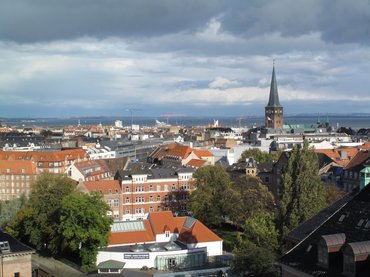
Confirmed speakers:
The decade of the 1970s is regarded as a ‘turn of an era’ by many scholars. Eric Hobsbawm describes the shift from a “golden age” of rapid economic growth to an age of economic stagnation. Helmut Kaelble refers to it as “a major turning point or turning period of the 20th century”. Niall Ferguson depicts the 1970s as a time of crisis in many spheres: the economic (with high inflation), political (with new movements and political conflicts), social (with increases in abortion, crime, class conflict, marital breakdown, and racial tensions), and popular culture. Konrad Jarausch marks this period as “the end of confidence”, describing a shift from progress optimism to cultural pessimism. Jeremy Black emphasizes the rise of environmental transformations and environmental consciousness in the 1970s, whilst Thomas Borstelmann argues that “the years of uncertainty and disillusionment” during this period opened opportunities for reform, improvement and cultural change.
Where do the sciences feature in this picture of the 1970s? Whilst historical interest in this period has risen quickly in recent years, little attention has so far been paid to the role of science in this decade of crisis and political and cultural change. Historian of science Jon Agar, as a rare exception, suggests the “long 1960s” as a “period of ‘sea change’” in the history of science. He depicts changing institutional dynamics, a multiplication of experts, the rise of value- and knowledge-based social movements, and orientation towards the self as transformative forces in science and its cultural context. He argues that we lack sufficient synthetic accounts for the sciences. Others prefer to speak of the ‘long 1970s’ to contrast features of unrest and crisis with enthusiasm in fields such as scientific planning and futurology.
This workshop aims to address these questions and to cast light on the sciences and their relationships to broader themes of political crisis and cultural transformation in the 1970s. This turn of an era raises many questions. How did the events of the 1970s impact the sciences and their perception in broader culture? To what extent were scientists affected by changing economic and political contexts and social interests? How did scientists view society during the 1970s, and how did they seek to portray themselves in light of broader social and political unrest? In what ways did scientists contribute to change in the 1970s? Broader historiographic questions, too, are of interest: How do Cold War science narratives help or hinder to understand the 1970s? Which concepts can serve to investigate the rise of environmental interest in science and broader culture? What continuities and discontinuities in the (environmental) sciences are visible from the pre-1970s to the post-1970s?
Within these broad topics, this workshop will focus on the role of environmental interest and resources in science in the 1970s. Pertinent topics to be discussed are scientific efforts related to nuclear energy, the oil crises, limits of growth, alternative energy technologies, environmental pollution, future planning, etc. Other topics dealing with science and its cultural impact in the 1970s will also be considered.
Convenors: Matthias Heymann, Janet Martin-Nielsen, Dania Achermann, Gabriel Henderson
Deadline has passed.